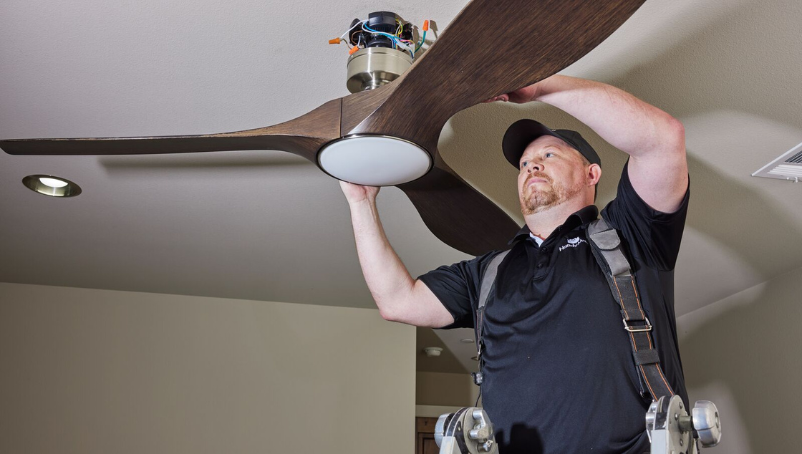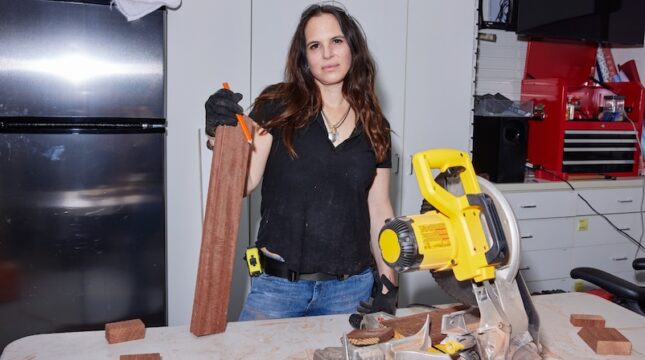How to get a handyman license in New Mexico
No application for handyman licenses in New Mexico exists, but you must apply for a handyman certificate if you plan to work on minor repairs and maintenance.
To get a handyperson certificate, you must first register your business with the Taxation and Revenue Department. Then, fill out and submit the handyman certificate application. The application must be notarized and include a payment for the non-refundable $15 application fee.
Once your application has been processed and approved, you will receive a card showing your handyman certification. You must present this card to each client before beginning a job.
You must renew your certificate annually. You will receive a mailed renewal notice from the New Mexico Regulation and Licensing Department with instructions on how to renew.
New Mexico contractor license requirements
You must apply for a contractor license if any of the following applies to your handyman work:
- You earn more than $7,200 per year.
- You work on more than one project at a time.
- You work on the construction, alteration, repair, installation or demolition of buildings and other structures.
To apply for a contractor license in New Mexico, complete the following steps:
- Verify your classification
- Become a qualifying party
- Pass the licensing exams
- Submit your contractor license application
Verify your classification
You must verify the correct classification for your work before beginning the application process. Fill out the Classification Determination Request form and submit it to PSI, New Mexico’s construction licensing service.
Become a qualifying party
Only a qualifying party may apply to become a New Mexico contractor. You must submit a qualifying party application and an affidavit proving your work experience, with both documents signed and notarized, along with a $30 application fee and a $6 certificate fee.
Depending on the number of years you’ve worked and what types of projects you plan to work on, you may apply for one of these contractors’ licenses:
- Two years (4,000 hours) experience: Residential Building Contractor (GB-2)
- Four years (8,000 hours) experience: General Building Contractor (GB-98)
Your experience must come from the last 10 years. Accepted experience includes prior hands-on work and education/technical training.
Pass the licensing exams
After becoming a qualifying party, you may take the two required licensing exams: a business and law exam and a trade exam specific to your license classification. You must achieve a score of 75% on each exam to pass.
Submit your contractor license application
Complete the contractor license application and include the following documents:
- A copy of your qualifying party certificate or a copy of your exam scores
- Proof of financial responsibility in the form of a $10,000 bond
- Proof of a current New Mexico tax ID number
- Proof of registration with the New Mexico Secretary of State (if applicable)
- A self-addressed, stamped envelope
- $30 contractor license application fee and $6 contractor license certificate fee
- $150 license fee (for GB-2) or $300 license fee (for GB-98)
You must submit your application in person or by mail.
New Mexico contractor license renewal
You must renew your New Mexico contractor license every three years. Licenses expire on the last day of the month they were issued. To renew, submit a notarized renewal application, the applicable license renewal fee and a self-addressed, stamped envelope.
What kind of insurance does a handyman need in New Mexico?
You need the right insurance coverage in New Mexico to protect your business, whether you work as a certified handyman or a licensed contractor. The following types of insurance are recommended for this type of work.
Workers’ Compensation insurance
Workers’ compensation insurance helps protect your business in the event of a workplace injury. It helps to pay for medical expenses, lost wages and other benefits if an employee gets hurt on the job.
The Construction Industries Division requires all construction employers to purchase workers’ compensation insurance regardless of the number of employees. A contractor license may be suspended or revoked for failure to maintain coverage.
General Liability insurance
Many handypeople or contractor clients request proof of general liability insurance. It helps cover work-related accidents involving damage to someone else’s property or an injury to someone other than an employee.
Tools and Equipment insurance
Protect your work gear with tools and equipment insurance. This type of insurance helps pay for repairs or replacements for damaged or stolen items.
Commercial Auto insurance
If you use a work vehicle to drive to different job sites, you’ll need commercial auto insurance to help pay for accident-related costs, such as towing, repairs and rental reimbursement.
Commercial Property insurance
Commercial property insurance helps cover damage or vandalism to a property that you own or rent. This insurance also helps cover inventory and equipment stored in that location.
How NEXT Insurance supports New Mexico handypeople
NEXT Insurance helps you get the right small business insurance as a handyman or contractor. Our custom insurance packages can help protect your business and, if necessary, fulfill New Mexico’s licensing requirements for contractors.
Simply apply for insurance using our convenient online platform. You can compare coverage options and get a certificate of insurance in just minutes from any computer or mobile device. Log in anytime to adjust your coverage or download and share unlimited COIs at no extra cost.
We specialize in coverage for handypeople and contractors like you, and we’ve helped thousands of small business owners get affordable insurance packages customized to meet their needs.
Get an instant quote online from NEXT today.
Do you have maintenance and repair projects in an area outside New Mexico? Find out which states require licenses in our summary of handyman license requirements.
This information has been provided as a service. It is correct and up-to-date to the best of our knowledge; however, it is in no way intended to offer legal advice and you must always consult with local authorities before you make any business decisions. Regulations and requirements may change at any time.






